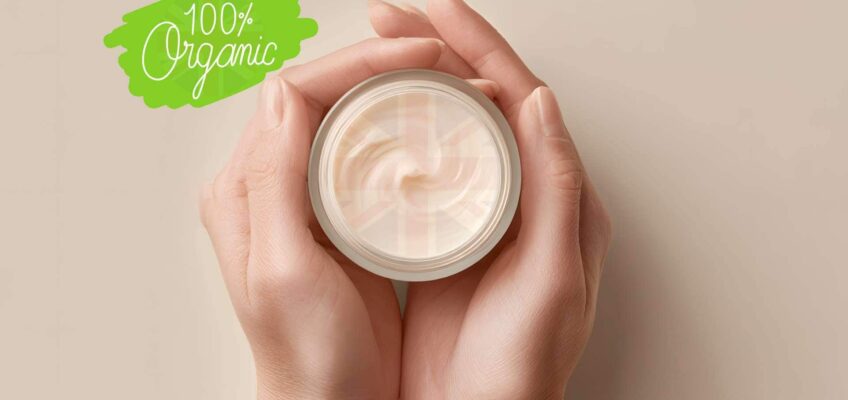Discovering UK-Made Organic Skincare: A First Guide for Conscious Consumers
If you want skincare that’s good for your skin, kind to the planet, and made in Britain. The journey into UK-made organic skincare is about learning what matters most to you. Certification offers clarity, ingredients reveal honesty, packaging reflects philosophy, and brand ethos tells the wider story.
Switching to organic skincare shouldn’t feel like a research project. You shouldn’t need a chemistry degree, a sustainability diploma and a highlighter to decode the back of a moisturiser. Yet with words like ‘natural, ‘eco’, ‘green’, and ‘clean’ being tossed around freely, it’s no wonder shoppers are confused.
Question. When You Pick Up an Organic Skincare Product, What’s the First Thing You Look At?
Be honest. Is it:
A) The packaging aesthetic
B) The ingredients
C) The price
D) Whether it’ll look nice on your bathroom shelf
E) Whether it’s actually made in the UK
Your answer simply tells you where your instincts lie. If you chose A or D, worry not. Good looks don’t make bad ethics.
Certification: A Seal of Trust
The word “organic” can be misleading. Without a certifying body, the label can sometimes be more decoration than definition. That is why certification marks matter.
Two of the most important standards in the UK are the Soil Association and COSMOS Organic. They are often seen side by side, but each carries a slightly different emphasis.
They perform audits. They inspect ingredient origins. They demand transparency. They have paperwork. If it’s certified, someone somewhere had to fill out forms. Bureaucracy, for once, is your friend.
Soil Association
This is the UK’s gold standard. If you only remember one certification, make it this one. When you see the Soil Association logo, you’re getting.
Verified organic ingredients (minimum % required)
No parabens, SLS, or petrochemicals
Ethical sourcing and fair labour
Recyclable packaging standards
It’s the seal trusted by over 70% of UK organic beauty buyers
COSMOS
COSMOS is an international standard, often seen alongside Soil Association logos. There are two types:
COSMOS Organic – High organic content with strict safety rules
COSMOS Natural – Mostly natural origin but not fully organic
If it carries either badge, you’re in safe hands.
B Corp
While not ingredient-specific, B Corp certification tells you the business itself is ethical – from environmental practices to employee welfare. It’s a sign of “we do the right thing even when you’re not looking”
Ingredient Transparency: Reading the Labels
Labels can sometimes feel like a foreign language. One pot of moisturiser may read like a botanical dictionary, while another lists only “key ingredients” in broad, friendly terms. The truth lies in the detail.
Once you’ve checked the certification, take a look at the ingredient list. You don’t need to understand every Latin term, but you can spot the good ones – especially when it comes to classic English botanicals that have soothed skin for centuries.
As a general rule, shorter lists often indicate simpler formulations. Look for familiar plants – rosehip, calendula, comfrey, sea buckthorn – and avoid red flags such as parabens, sulphates, phthalates, or synthetic fragrances.
Bonus Botanical Heroes
You’ll also see ingredients drawn from seaweed (hydration and minerals), plant oils like jojoba and evening primrose (barrier support), and natural actives such as hyaluronic acid, vitamin C or fruit enzymes.
If it sounds like food, tea or a garden plant – good sign. If it sounds like a science experiment and ends in “-paraben” – avoid.
Beauty Beyond the Jar
Packaging is not a neutral choice. It is part of the story. Many UK organic skincare brands are now moving away from single-use plastics in favour of recyclable glass, aluminium tins, compostable cartons, and refillable bottles.
Farming practices, supply chains, ethical audits, and consumer trust all play a role in that jar of natural skincare on your bathroom shelf.
A practical checklist for keeping it natural
The no-nonsense checklist
Look for Soil Association Organic or COSMOS logos
Avoid uncertified “organic” claims
Prefer short ingredient lists with recognisable plants
Skip parabens, sulphates, artificial fragrance, or “parfum (mystery)”
Choose glass, aluminium, compostable or refillable packaging
Check for Leaping Bunny (cruelty-free) and Vegan Society badges if relevant
Confirm it’s made in Britain – not just branded British
Buying UK-made organic skincare
If you want to buy natural British skincare, you help support local makers, reduce carbon footprint and ensure high manufacturing standards. Choose brands that are transparent about their origin, ingredients, and eco credentials, with a focus on small batch and locally-made products. Lipsticks should be organic, vegan if desired, mineral or fruit pigmented, and free from synthetic dyes or parabens.
Genuine British brands tend to proudly state exact counties or regions on their labels. Look for,
Handmade in Cornwall
Bottled in Suffolk
Formulated in Scotland using local seaweed
Start Small. Begin with a discovery kit or single product to test what works for your skin before committing. At first, the path may seem crowded with jargon, labels, and logos. But with each choice, you discover a little more about what you value.







